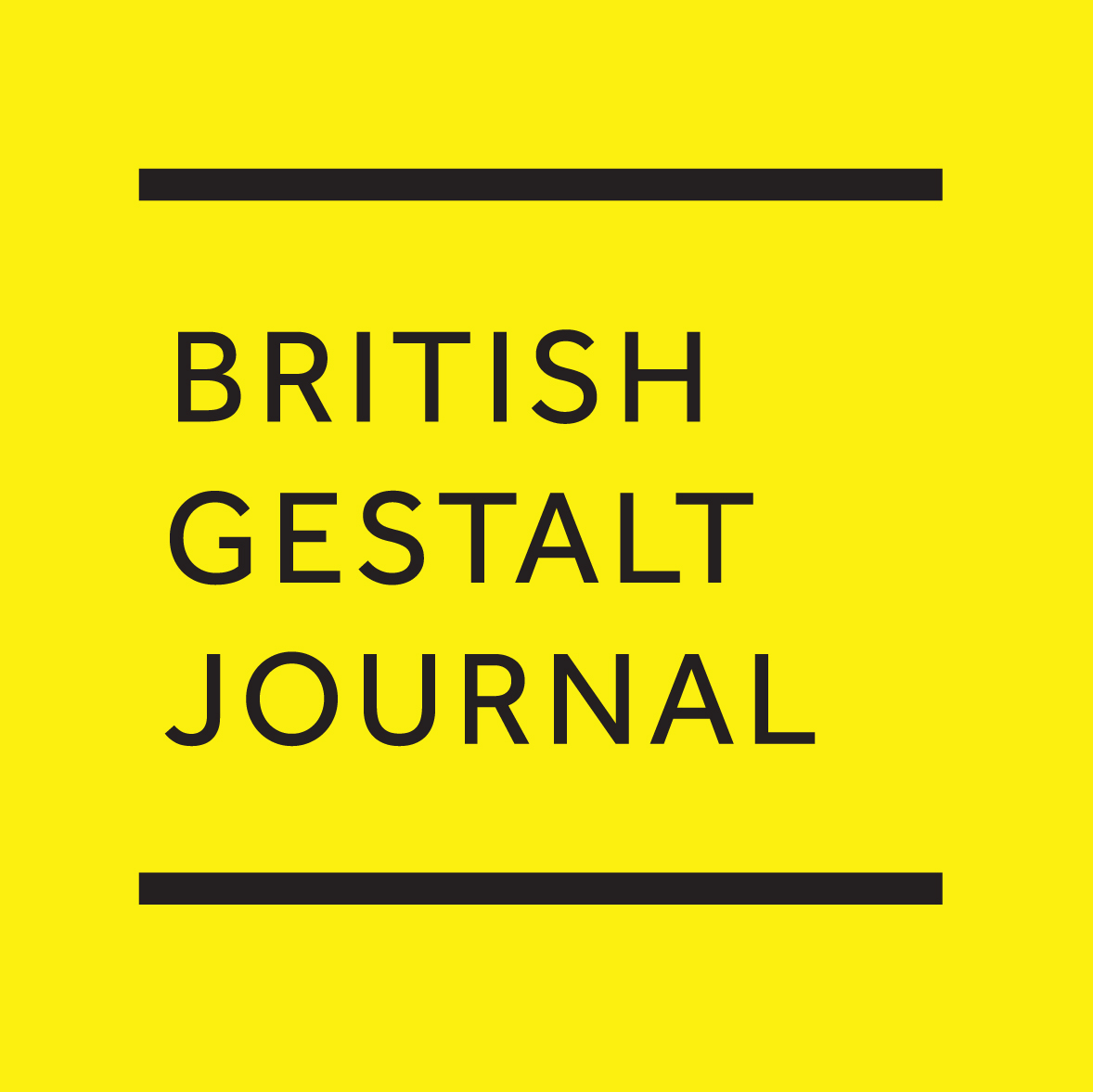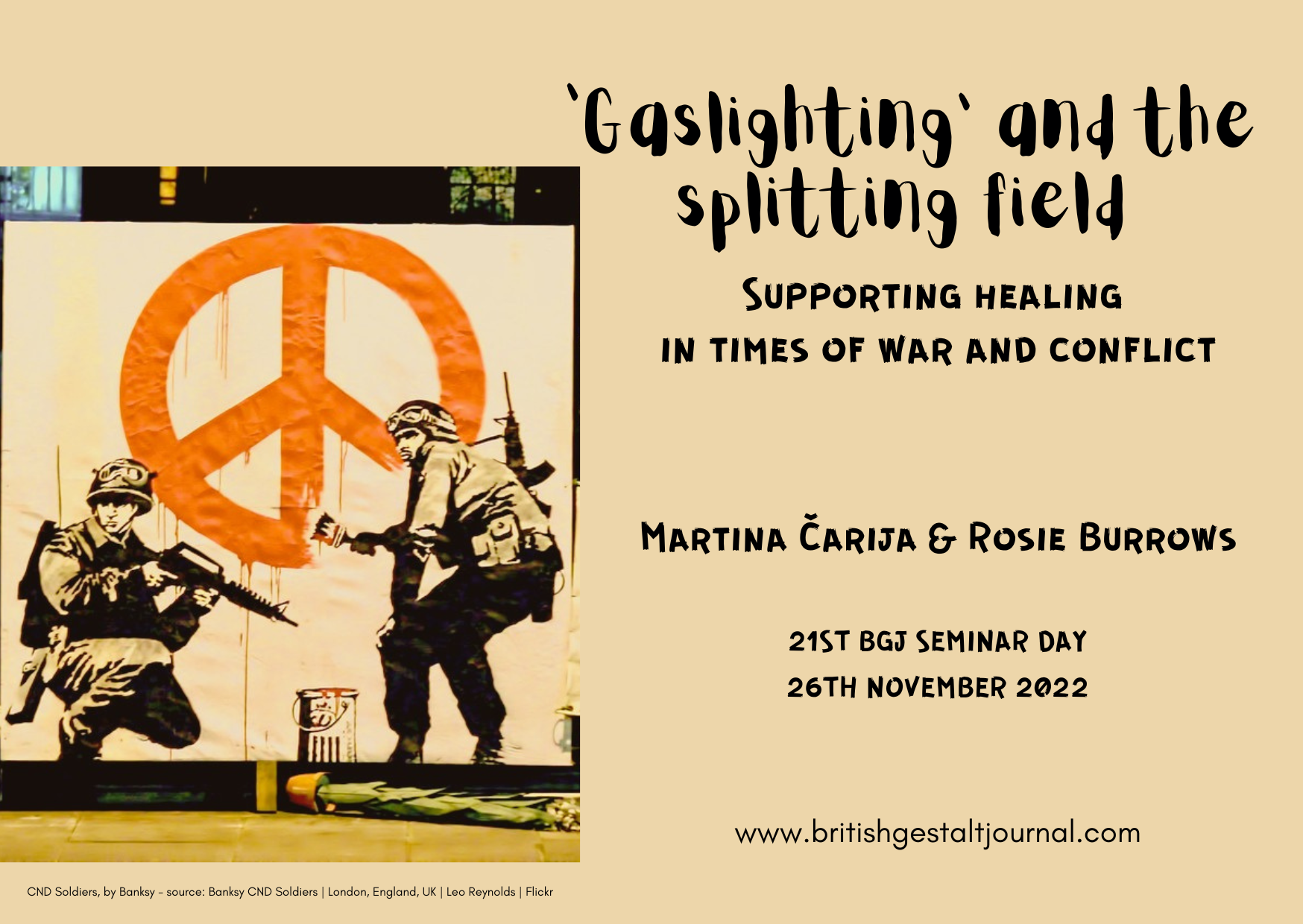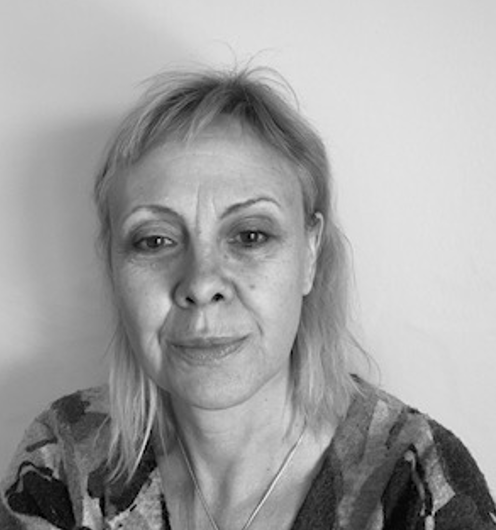On Saturday 4 November 2023, Vikram Kolmannskog leads the British Gestalt Journal's annual Seminar Day. Here, British Gestalt Journal Assistant Editor and Secretary of Gestalt Publishing Ltd Chris O'Malley, asks Vikram a few questions ahead of the day.
Good morning Vikram, and thank you for taking the time to talk to me ahead of the British Gestalt Journal online Seminar Day this autumn on Saturday 4 November. Many of us became aware of you through your book The Empty Chair: Tales from Gestalt Therapy, but there's a lot more to you than that, I know. You're a professor at the Norwegian Gestalt Institute; you trained as a lawyer with a specialisation in human rights and as a social scientist with a doctoral degree in law; you've written fiction described as ‘capturing a heady contemporary sense of what it is to be queer, cosmopolitan, spiritual and sexual.’ You have several research interests, as I understand, including climate change in ecology, Buddhist and other spiritual practices including mindfulness as well as, of course, GSRD themes. So, it's great to have this chance to just have a chat about GSRD and the Seminar Day.
Thank you, Chris.
Great. Well, you recently co-edited the book Queering Gestalt Therapy (subtitled: An Anthology on Gender, Sex and Relationship Diversity in Psychotherapy). It seems like GSRD's time has come and I wonder how that fits with your broader background, as I described. There is a connection to the theme of social justice, I believe, so I'm just wondering how it fits for you?
Thank you for that question. How does it fit for me? I think in a lot of my work, ever since I was young I've been very concerned with social justice and activism and I think that's why I went down the human rights law route first and then I felt I had to kind of choose but what I feel more and more with Gestalt therapy, one of the things I enjoy about Gestalt therapy, is that we can also include that wider field. It's not a psychotherapy, just the internal, but it's really looking at what happens between us and various factors.
That's something that I think is one of the reasons I feel very at home in Gestalt therapy because I bring with me my interest, my passion, my sadness, my grief, my joy, for the natural world and what we're doing to the natural world. Also, in social issues, such as Gender, Sex, and Relationship Diversity and normativity, and oppression. So, yes, I think it does really fit well with my overall passions, to see how we can reduce unnecessary suffering and increase joy.
I think joy is a word that I want to use more. I think we can focus on joy and there's a lot of joy to be discovered for everyone in Gender, Sex, and Relationship Diversity.
The inclusivity of it comes across to me when you say that. I was thinking that somebody said ‘All theory is personal.’ I can't think whether that was Lynne Jacobs or somebody else, but that really sort of strikes me that it fits with you to a high degree.
I think some people want to know the difference between LGBT+ definitions and communities and GSRD. What do you see as the fit or the difference there?
I was curious now when you started saying that [acronym], when you started on the ‘L’, where would you end, right? That's one thing, the LGBTQIA+, it can go on and become a whole alphabet soup because we want to include all kinds of marginalised sexualities, gender is in there, so that's one reason for this new concept or new way of phrasing it: Gender, Sex, and Relationship Diversity. But then what I think Gender, Sex, and Relationship Diversity also really clearly includes is the diversity of everyone, so it's also heterosexuality. Heterosexuality is then part of this diversity whereas with LGBTQIA+ it's all of us marginalised sexual identities etc. I believe it was Pink Therapy, in the UK especially, headed by Dominic Davies I believe and Meg-John Barker, who came up with this term first. It was Gender and Sexuality Diversity and then broadened to Gender, Sexuality and Relationship Diversity, and then when we were working on this book Queering Gestalt Therapy one of my co-editors was in touch with Dominic to just talk about this concept and Dominic told us that the latest iteration is Gender, Sex, and Relationship Diversity because sex can then be inclusive of intersex as well as meaning sexuality.
So, now what we're using is GSRD to stand for Gender, Sex and Relationship Diversity so it's basically incredibly inclusive, right? The only thing it's saying is that there is a diversity when it comes to gender and sex in relationships and that's often overlooked or there are active forces trying to oppress, so that it becomes not the diversity.
To exclude.
Yes.
Okay, and the Seminar Day itself, I'm wondering how you're looking forward to that and what you're anticipating doing? In other words, I wonder what people might expect or anticipate in terms of input from theory, experiential exercises. What might people expect in that region?
Yes. So, Chris, if you don't mind, I'll just go back for a moment because what I also want to say about GSRD - and this fits again with my approach - is that to me this is about liberating and increasing joy for everyone. So, I do think it's important to focus on marginalised communities like LGBTQ+ and I am part of that. Our rights and our issues. But what I think GSRD really does is to show that straight people also have a lot of issues because of norms relating to gender and sexuality. This has been one of my concerns - that we are working to really liberate everyone and that's something that I want to bring into the Seminar Day as well. When I do introduce some of my research and when we do some experiential exercises that we are trying to look at this not just as an issue concerning someone over there [e.g.] ‘Oh, it's that marginalised community, we have to be more inclusive of them, or become more aware of how we are judging them.’
It is very much also about each and every one of us and seeing what biases, what assumptions, what oppression is going on in this body-mind and how can I perhaps become more aware of it? Maybe there will be shame, but hopefully there will also be some expansion for all of us.
I'm glad you took time to expand what you wanted to say because I was thinking about how this could be seen by the participants in terms of their own inclusion in the concept or not but I'm really hearing your theme of ‘liberate and joy’ which is speaking very powerfully to me.
There could be some difficulties too, and you talked about shame. Do you want to say any more about what people could find difficult or what you or anybody have found difficult to immerse yourself in this?
I've done experiments or experiential exercises with students, trainers and researchers around this. Sometimes this heteronormativity or the ‘norms’ that say we have to be a certain way in terms of our gender, sex and relationship preferences - that comes up. And it’s revealed that ‘Oh, I have some of that in me.’ Because of the very individualistic culture we're living in, we feel that ‘Oh, I am a bad person now because we're supposed to be more inclusive, we're supposed to not be heteronormative.’ Naturally, shame will come up. What I want to say to that - and I truly believe this, if we take the field paradigm seriously - is that that kind of individualistic fixation can relax somewhat because I believe heteronormativity, like racism and other oppressive forces, are forces in the field. It's really free-floating.
I'll mention here that I'm a big fan of Project Implicit, where you can take these tests to reveal your implicit biases. I first took that test a few years ago now - I've been out as a gay man for a long time and the test result revealed that I was quite heteronormative and homophobic so this is something that we, all of us [experience]. It's the water we swim in, it’s the air we’re breathing, I think. I want us to be able to explore this, and shame will come up naturally, but hopefully this way of viewing it as a field phenomena can relax some of that individualistic fixation of ‘Am I now a good person or a bad person?’ Well, heteronormativity arises naturally in me at times, as it will in everyone else too. To me, it is about becoming more aware and then we can release some of it.
It's really supportive to hear your personal experience around discovering what you were not aware of. Project Implicit sounds like something we could all access, is that right? It's online?
That’s right.
I was wondering about asking you about the [Seminar Day], but also I wonder what preparation people might do for the day? I didn't imagine that you would ask people to do anything specific, but that could be something people could look at?
Absolutely. Any chance I get, I recommend Project Implicit. It's free, it's online, and I think it's one of the biggest psychological studies/experiments existing. You can test your implicit biases and a lot of different issues such as: sexuality, sexual orientation, race, racism, I think body size. Various things, so it's very recommended.
Apart from that, I think I'll do a little bit of promoting of this book! So, we're very happy with this new book Queering Gestalt Therapy, which you mentioned, where I'm co-editor, and that's something to read if people want to read something. But I'd also say, people learn in different ways and that's something I appreciate about Gestalt therapy and pedagogy - that you can also just show up without having done any preparation and we will do some exercises, I’ll introduce some theories and some of my research and then maybe you might want to read more afterwards. So, it's really up to people.
I'm enjoying what you said. We’ve called the day itself Beyond Binaries: Embracing GSRD. Are you going to be queering the Seminar Day? Is that what's going to be happening? Or do we need to do that all together?
Yes, I think let's queer it together! Yeah, let's queer it together.
Sounds great. Is there anything else that you'd like to say about the day itself? I'm really looking forward to it now, getting a real flavour of what we might be in for. What would you like to add?
I'm looking forward to it as well. You never know what it’s going to be like. I have certain things that I want to introduce and and will facilitate for all of us, and then I'm curious to see who shows up and what we're gonna do together.
Great, so not too much of a spoiler. We've got a little bit of a taste of what we might be in for and what we might look out for. Vikram, it’s been really great that you've shared your time and given us a flavour of what's ahead so thank you very much for that. For now, have a good day and look forward to seeing you again in November.
Thank you, Chris, and happy Pride, if you're celebrating.
Yes, thank you very much, and to you.
About Vikram Kolmannskog and Seminar Day 2023
Vikram Kolmannskog is a writer and professor at the Norwegian Gestalt Institute University College. He is the author of several books including short stories and the collection ‘The Empty Chair: Tales from Gestalt Therapy'. Vikram has also trained as a lawyer with a specialisation in human rights, and as a social scientist, holding a doctoral degree in the sociology of law. Vikram is interested in and involved with Gender, Sex and Relationship Diversity (GSRD) in clinical practice, training, and research. Among his several publications on the topic is the recent book 'Queering Gestalt Therapy' (Routledge, 2023) which he co-edited and contributed a chapter to.
Participants at British Gestalt Journal Seminar Day 2023 can expect to learn about some GSRD-related concepts and research, and become more aware of how pervasive heteronormativity is, including in the therapy room. The day will include mini-lectures, experiential exercises and reflections, dialogue, and a Q&A.



